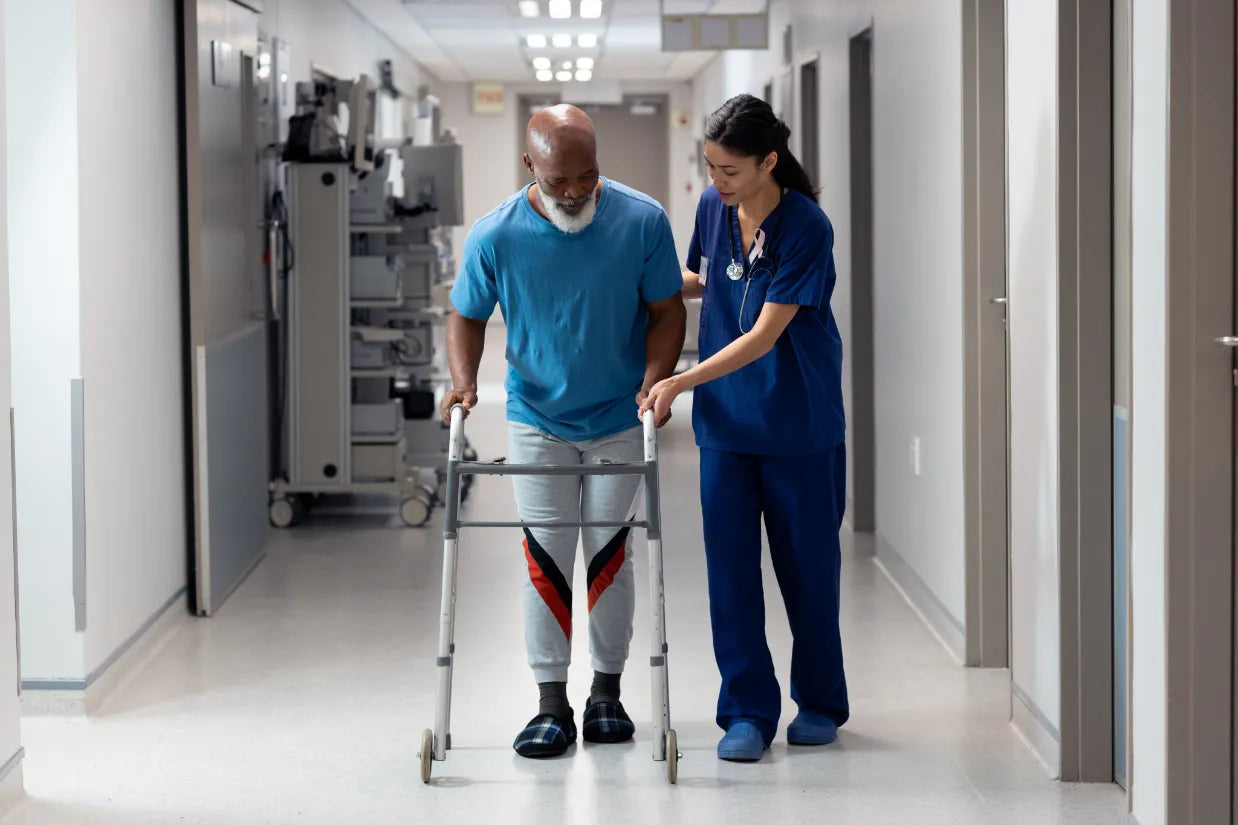
Fatigue is one of the most frustrating symptoms of ALS. It’s more than just feeling tired—it’s an overwhelming, body-wide exhaustion that makes even simple tasks feel impossible. But why does it happen? And more importantly, what can you do about it?
Let’s break it down in a way that makes sense, and talk about real strategies to help manage fatigue and improve daily energy levels.
Why Do People with ALS Feel So Exhausted?
At its core, ALS affects motor neurons, the nerve cells that control movement. These neurons need energy to stay alive and function efficiently and effectively. ALS disrupts the motor neurons’ ability to produce energy and the ability of the motor neurons to activate the muscles because it disrupts the pathways between the motor neurons and muscles.
Here’s what’s happening inside the body:
✅ Mitochondria (your cell’s power plants) don’t work as well – Mitochondria give your cells energy and without energy your cells ultimately die. If your car doesn’t have gas, it won’t work. Similarly, if your motor neurons don’t have energy, they won’t work and you will feel fatigue because your body lacks energy overall.
✅ Muscles work harder to compensate – Since ALS deprives motor neurons of energy and it disrupts the pathways between the motor neurons and the muscles. The muscles have to work harder to keep up, which can lead to fatigue.
✅ Muscle Wasting or Atrophy – The motor neurons’ inability to activate the muscles due to lack of energy and compromised pathways not allowing the motor neurons to activate the muscles can lead to muscle atrophy. This, again, forces the muscles to work harder to accomplish simple movements because the muscles do not have the same power or strength as with normal muscle activation, which can lead to fatigue.
So, what can you do to fight back?
5 Ways to Boost Energy When You Have ALS
1. Fuel Your Body with the Right Nutrients
Not all calories are created equal. A high-fat, high-calorie diet is often recommended for ALS because fats are an efficient energy source that support cell function.
✔ Eat more healthy fats: Avocados, olive oil, nuts, and fatty fish.
✔ Increase protein intake: Helps maintain muscle strength.
✔ Stay hydrated: Dehydration makes fatigue worse, so drink plenty of fluids.
2. Support Your Cells with Targeted Supplements
The Deanna Protocol was designed to restore energy at the cellular level and help establish connection between the motor neurons and muscles (as well as reestablish connection between other nerve cells). The key ingredients, AAKG (Arginine Alpha-Ketoglutarate) and GABA combined play a major role in the body's energy production system and help the motor neurons activate the muscles.
🚀 How it helps: AAKG supports the Krebs cycle/TCA cycle, the process that fuels motor neurons. By providing this critical nutrient, the Deanna Protocol helps cells generate energy more efficiently, which can lead to improved endurance and reduced fatigue. The combination of the two ingredients also help reestablish connection between motor neurons and muscles, which also helps alleviate fatigue.
✔ Start with a small dose and adjust based on how you feel.
✔ Pair it with a nutrient-rich diet for the best results.
3. Move, But Don’t Overdo It
Exercise is important but equally important is to not work the muscles out to a point of complete fatigue. Also, it’s important to keep your muscles stretched and loose to avoid stiffness, which can limit movement and be uncomfortable.
🏃♂️ What helps:
✔ Physical therapy to assist with exercises tailored to individual needs
✔ Massage and Stretching - this can be done by a physical therapist or bodywork specialist and some massage therapists who incorporate stretching into their sessions. This will keep an individual’s muscles loose and prevent muscle stiffness from limiting function.
✔ Breathing exercises to keep lungs strong
The key is balance—listen to your body and rest when needed.
4. Prioritize Rest and Recovery
Fatigue isn't just about physical energy—it’s also mental and emotional exhaustion. Managing stress and getting enough rest is just as important as diet and supplements.
😴 Try these tips:
✔ Take short naps during the day if needed (but not too late in the afternoon).
✔ Establish a relaxing bedtime routine (avoid screens before bed).
✔ Manage stress with deep breathing, meditation, or prayer.
A well-rested body functions better, and even small improvements in sleep quality can make a big difference in daily energy levels.
5. Lean on Your Support System
ALS is not a journey you should take alone. Caregivers, friends, and family want to help, and allowing them to assist with daily tasks conserves your energy for the things that matter most.
💬 What caregivers can do to help:
✔ Assist with meal preparation to ensure nutritional needs are met.
✔ Help with mobility and stretching exercises.
✔ Offer emotional support and encouragement.
Even small adjustments—like using adaptive tools, modifying daily routines, or accepting help—can make daily life easier and less exhausting.
Final Thoughts: Energy Is Possible
ALS may cause fatigue, but it doesn’t mean you’re powerless. With the right combination of nutrition, supplements, movement, rest, and support, you can improve how your body uses energy and reclaim more control over your day.
If you’re looking for ways to support your body’s energy levels, the Deanna Protocol is a great place to start. It was designed to help cells work more efficiently and give your motor neurons the fuel they need. Many people with ALS report feeling stronger and more energized after adding it to their routine.
👉 Want to learn more? Explore how the Deanna Protocol can help you here.





